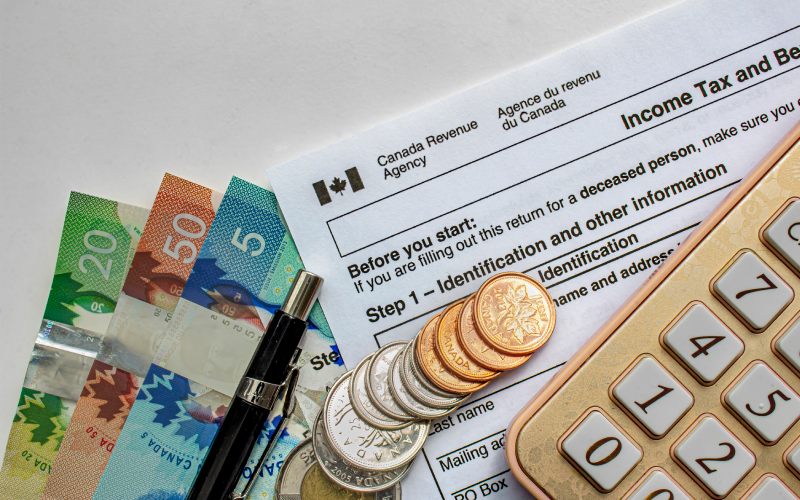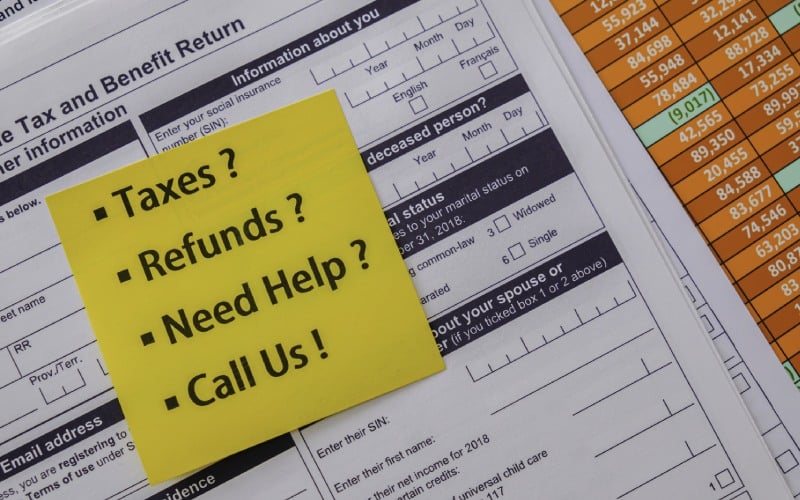Regulatory compliance is at the core of Canada’s tax system, ensuring that individuals and businesses meet their obligations under the law.
The regulatory framework for Canadian tax compliance has multiple components. The CRA enforces tax laws and regulations, which are continuously evolving. Staying compliant means not only accurately reporting income and expenses but also understanding the ever-changing landscape of tax regulations.
For dental practices, regulatory compliance goes beyond accurate tax return filing. They must also ensure they are meeting various tax obligations throughout the year, such as payroll deductions, GST/HST (Goods and Services Tax/Harmonized Sales Tax) remittances, and corporate income tax instalments. Failure to meet these obligations can result in penalties and interest charges.
Dentists and dental practice owners have many opportunities to reduce the taxes they owe, if they are aware of them, including claiming deductions for loans for dental school or equipment financing, office space leasing, equipment depreciation, and many more. Dentists need to be critically aware, however, that these claims need to be accurately and correctly reported, or they will not be compliant with tax regulations.

Table of Contents
ToggleRole of the Canadian Revenue Agency (CRA)
The Canadian Revenue Agency (CRA) is the main entity responsible for enforcing tax regulations at the federal level. It has a key role in maintaining tax compliance by establishing and administering the tax laws, but it also provides guidance and support to taxpayers. The CRA has a range of tools and resources to make tax compliance easier, while still ensuring that individuals and businesses meet their legal obligations.
The Taxpayer Bill of Rights outlines 16 rights that are based on the core values of professionalism, respect, integrity, and collaboration at Canada’s Revenue Agency (CRA). It specifies how you should be treated when you interact with the CRA and emphasizes their dedication to making interactions as smooth and efficient as possible.
Tools for Ensuring Compliance
There are robust tools for identifying tax evasion and non-compliance, including data matching and information-sharing agreements with financial institutions and foreign tax authorities.
Data Matching
The CRA has advanced data-matching tools that allow it to cross-reference financial information provided by a taxpayer with other information from sources such as financial institutions, employers, and other government agencies. Inaccurate or inconsistent information can trigger an audit or investigation.
Information-Sharing Agreements
The CRA collaborates with financial institutions and foreign tax authorities to access information about a taxpayer’s financial activities to prevent evading taxes by hiding income or assets offshore.
Audit or Investigation Triggers
The CRA conducts audits and investigations when discrepancies or irregularities are detected in a taxpayer’s financial records. An audit is an in-depth examination of a taxpayer’s financial situation; an investigation is typically conducted when there is suspicion of tax evasion.
Penalties and Interest Charges
The CRA may impose penalties for late or inaccurate filings, failure to meet tax obligations, or other infractions. Interest charges are charged on unpaid taxes, so a non-compliant taxpayer will pay more; this is aimed at discouraging deliberately late filings.
You can find key due dates and payment dates on the CRA’s website.

Key Components of Domestic Tax Compliance
There are a few cornerstones of tax compliance in Canada.
Accurate Reporting Requirements
Accurate reporting of income and expenses is essential for Canadian domestic tax compliance. This includes detailed documentation of financial transactions throughout the year. Businesses, self-employed individuals, and taxpayers all must maintain comprehensive records that document their financial activities, so that all relevant information is available for tax returns. Even though some documentation may not be required to be sent with a tax return, it needs to be available in case the CRA asks for it later.
Dentists and dental practice owners need to understand the importance of regulatory compliance in Canada’s tax system. This includes accurately reporting income and expenses. There are some key areas where many dental practice owners may have difficulty accurately reporting numbers, as requirements can get confusing.
Most dentists are aware they need to meticulously track patient billing and collections, although many could still benefit from improvements; but many are not aware of how to report on other aspects of the business.
For example, dental equipment depreciation needs to be reported appropriately following regulated depreciation schedules. Consulting a tax professional on the appropriate depreciation schedule and tax implications will help.
Professional help may also help with reporting of office space leasing. Many dental practices also rent or lease their office space and equipment, and dentists need to distinguish between lease payments and capital expenses, as the tax treatment may vary.
There are several other areas where dentists and their practices may make claims to reduce taxes owed, including claims for professional fees, licences, and expenses, school or equipment loans, and more, but they need to be careful about accurate reporting. These opportunities must be claimed properly, or the dentist will risk fines and audits.
Timely Tax Filings
Meeting deadlines is a fundamental aspect of tax compliance. For individual taxpayers, annual income tax returns are due by April 30th of each year. Self-employed individuals have an extended deadline of June 15th, but taxes owed are still due by April 30th. Businesses, including dental practices, have specific filing deadlines for corporate tax returns, typically within six months of their fiscal year-end. Again, late filings result in penalties and interest charges.
Tax Obligations Throughout the Year
Compliance is not limited to the annual tax return. Dental practices must meet various tax obligations throughout the year, including payroll deductions, GST/HST remittances, and corporate income tax installments. These obligations are subject to specific deadlines and financial penalties for noncompliance.
Dental practice owners have key regulatory compliance obligations that the average taxpayers do not need to worry about. Dental practice owners are responsible for employee payroll, and must meet payroll deduction obligations or face penalties and interest charges. Dental practices may also need to deal with GST/HST remittances.

Dental Tax Planning and Strategy
Staying informed, meeting deadlines, and seeking professional assistance when needed are key strategies for dental practice owners in navigating regulatory compliance with Canada’s tax laws. Keeping up with and understanding new regulations and reporting requirements can be challenging, making it difficult to stay compliant and leverage any tax saving opportunities on top of running a dental practice. Professional tax accounting agencies can help you comply with your regulatory reporting requirements and handle your tax filings to ensure you are reducing your tax liability as much as possible – as well as simplifying the process for you and ensuring you stay current on rules.
The Need for Tailored Tax Planning
Effective tax planning is about more than just filling out forms; it involves devising strategies to minimize one’s tax liability while remaining fully compliant with tax laws. For businesses, this might mean structuring their operations in a way that maximizes deductions and credits. For individuals, it could involve long-term financial planning to take advantage of tax-advantaged accounts like TFSAs (Tax-Free Savings Accounts) and RRSPs.
A tax planner with expertise in helping dentists and practice owners is better poised to identify key opportunities available to this industry, and understand how claims can be made while staying compliant to tax rules and regulations.
Importance of Staying Current for Tax Compliance
One critical aspect of tax planning is staying informed about changes to the tax code. The Canadian government frequently updates tax laws, and understanding how these changes affect you is essential.

Specialized Tax Services for Dentists and Dental Practice Owners to Assist with Tax Preparation and Regulatory Compliance
Getting the help of a tax professional who specializes in the dental industry provides a significant advantage for dentists looking to maximize their tax returns while staying compliant with regulations. In the search for tax opportunities, it can be difficult for dentists to navigate the requirements while trying to claim deductions and credits, and unintentionally make errors, especially when tax rules are constantly changing.
Dental practice owners often grapple with the complexities of reporting various aspects of their business, including billings, dental equipment depreciation, equipment or office space leasing, and other key areas of the business.
An accounting and tax planning and filing agency with expertise specifically in the dental industry, such as Dental Tax, can guide dentists through these complexities, ensuring proper reporting and tax implications.
Dental Tax assists in navigating the intricacies of tax obligations throughout the year, such as payroll deductions and GST/HST remittances, helping to avoid penalties and interest charges.
General accounting and bookkeeping services help by ensuring meticulous records are kept throughout the year for payroll, accounts payables and receivables and other areas, so all records and numbers are accurate and easily available for taxes. Tax planning not only ensures that good opportunities for tax savings are identified, but that each opportunity is relevant to a dental practice. It ensures that tax strategies are compliant, too. Tax filing services ensure that the tax strategies for practices are followed properly when filing, and that each claim is accurately and properly done, without claiming under an incorrect section or making other common errors.
Dental Tax offers tax planning and filing services, tailored specifically for dental professionals and dental practice owners. We specialize in strategies to reduce the amount of tax you owe, while ensuring your tax compliance. If you ever have an audit, we will be there to help.
Adam has an MBA from the Richard Ivey School of Business in London and also holds a Chartered Investment Manager designation.
- Maximizing Tax Deductions for Dental Practices - April 1, 2024
- Tax-Efficient Investing For Dentists - March 28, 2024
- 2024 Tax Insights: Key Changes Every Dentist Needs to Know - March 6, 2024





